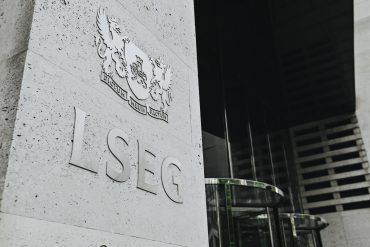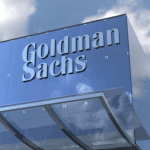
- LSEG
- Private Capital
- Trading Platforms
LSE Bets on Blockchain to Rewrite $13 Trillion Private Fund Market
5 minute read

London Stock Exchange blockchain platform slashes private fund settlement times from weeks to seconds while targeting $13 trillion market
Key Takeaways
- LSEG launches blockchain trading platform for private funds, completing its first transaction through the Digital Markets Infrastructure system powered by Microsoft Azure
- Settlement times reduced from 40-50 days to seconds through tokenization of private fund assets, targeting the $13 trillion global private capital market
- Major exchange expansion planned with LSEG preparing to extend blockchain technology to equities and traditional financial assets under separate regulatory approval
Introduction
The London Stock Exchange Group has executed its first blockchain-powered transaction for private funds, marking a significant shift toward distributed ledger technology in traditional finance. The exchange’s new Digital Markets Infrastructure platform processes private fund transactions in seconds rather than the typical 40-50 days required by conventional methods.
This development positions LSEG as the first major global exchange to operationalize blockchain technology for regulated asset classes beyond cryptocurrencies. The platform targets the rapidly expanding private capital market, which manages over $13 trillion in assets globally.
Key Developments
LSEG’s DMI platform launched with initial clients including MembersCap and Archax already onboarded. The first transaction involved MCM Fund 1, MembersCap’s flagship fund, with Archax serving as nominee for a major Web3 foundation.
The platform operates through tokenization, creating digital representations of fund ownership that track transaction history on a blockchain ledger. Built on Microsoft Azure’s cloud infrastructure, the system maintains interoperability with traditional financial systems while offering blockchain efficiencies.
EJF Capital has joined as an early adopter, with several of its funds preparing for platform listing. The exchange plans to operate this blockchain venture as a separate legal entity to avoid competing directly with its traditional business operations.
Market Impact
The private markets sector presents substantial growth opportunities, with global private capital assets under management exceeding $13 trillion in 2023. Traditional settlement processes in this market remain heavily manual and fragmented, creating significant operational inefficiencies.
LSEG’s platform addresses these pain points by automating processes that typically require extensive administrative work. The system integrates with LSEG’s Workspace platform, positioning it to compete directly with Bloomberg terminals for financial data services.
The move helps diversify LSEG’s revenue streams beyond core equities business, which faces ongoing challenges from declining IPO activity in recent years.
Strategic Insights
LSEG’s blockchain initiative represents a pragmatic approach to financial technology innovation, focusing on regulated markets rather than speculative crypto assets. The platform’s private, permissioned structure ensures compliance with know-your-customer requirements while maintaining regulatory oversight.
The exchange’s partnership with Microsoft, which took a 4% stake in LSEG in 2022, provides both technological infrastructure and strategic validation. This collaboration signals institutional confidence in blockchain applications for traditional finance.
Private funds serve as an ideal testing ground for blockchain technology due to their complex settlement processes and limited liquidity. Success in this sector could establish a template for broader market adoption.
Expert Opinions and Data
Darko Hajdukovic, head of digital markets infrastructure at LSEG, describes current private market processes as “very manual” and “very costly.” He emphasizes that the platform demonstrates “appetite for an end-to-end, interoperable, regulated financial markets DLT infrastructure.”
Murray Roos, head of capital markets at LSEG, characterizes blockchain as reaching an “inflection point” with potential to make processes “slicker, smoother, cheaper, and more transparent” while maintaining regulation. LSEG explored this blockchain-enabled trading platform for approximately one year before launch.
Microsoft’s Bill Borden highlights the partnership’s ambition to “reshape the future of global finance” and describes the collaboration as a “powerful example” of strategic technology integration in financial services.
Conclusion
LSEG’s successful launch of blockchain-based private fund trading establishes a new operational model for traditional exchanges. The platform’s ability to reduce settlement times from weeks to seconds while maintaining regulatory compliance demonstrates blockchain’s practical applications in mainstream finance.
The exchange actively engages with regulators and government officials regarding expansion plans, including potential blockchain trading for equities and other traditional assets. This measured approach to innovation positions LSEG to capture emerging market opportunities while preserving its established institutional relationships.








